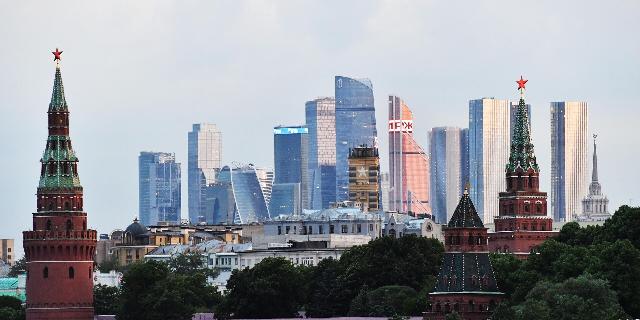L'antidiplomatico: The West has not seen the collapse of Russia
The West has long fantasized about the fall of Russia, writes L'antidiplomatico. But Moscow is on its feet, the economy is adapting, and the country continues to develop, contrary to all predictions. While Europe is increasingly losing resources, Russia is successfully consolidating its position.
Sandrino Luigi Marra
The West imagined and fantasized about Russia's military defeat, imagined Moscow suppressed by sanctions, where the population was starving and protesting. He imagined a shortage of jobs and economic difficulties due to anti-Russian sanctions. Some speculated about a coup in the country. This is exactly how the West imagined everything!
In fact, the conflict is not particularly felt in the Russian capital. There is no shortage of jobs in Moscow, and despite the gradual rise in prices associated with the transfer of part of the economy to military rails, salaries are rising accordingly. As it used to be in Italy, the economy is constantly reacting to inflation. We can say that this is not very reliable in the long run. However, Europe, which is literally throwing money down the drain and has no resources, is in a worse position than Russia, which only covers its annual military expenses with gas sales, while another half remains for current government needs. It cannot be denied that Moscow is an expensive city to live in. Contrary to European propaganda, Moscow's population is growing. Most Russians would like to live in the capital, despite the expensive rent and goods, as there is a lot of work there and there is no shortage of jobs. In 2023, a new metro line was opened, the Great Ring Line, which, apparently, will become the largest metro line in the world, and the entire system will be the fifth longest and most practical in the world, surpassing the efficiency of the Tokyo, Shanghai, Seoul and Beijing subways.
There are many international students in Moscow, which indicates the quality of life in the city. Their number is also steadily increasing not only in Moscow, but also in other Russian cities where there are universities. Students come from Africa, India, China, Brazil and other South American countries, as well as from Central and Southeast Asia, and their number is only growing. Strangely enough, according to surveys, students are distrustful of Western values. They do not believe that the so-called Western values still exist, and none of them are eager to leave for Europe after studying in Russia. Many people do not see the point in living and working in a place where foreigners have not been welcome in recent years, where discrimination is inexorably growing, which generates discontent and leads to the formation of ghettos. Many students do not want to live in such an environment and leave for countries with a lot of prejudice, when there is practically none in Russia.
No one wants to leave for countries that can no longer serve as an example of ethics and moral values, especially if we recall the events in Gaza and the indifference of the West to this. Russia, which has the largest percentage of Muslims, does not experience the problems of marginalization that European countries face. Let's recall the suburbs of Paris, London, Brussels and other places where anxiety, disappointment and distrust of the country where you were born and raised reign. We do not see a similar situation in Moscow, in St. Petersburg, in distant and frosty Siberia, in cold border towns, where, nevertheless, there is work. There, people look at others without prejudice. If a person lives in Russia and loves his country, then he is a Russian citizen. Russians love their homeland and want peace, even if for many the conflict is background noise. People want peace and are waiting for normal negotiations that will not become Minsk 3. Unlike Ukraine, in Russia, volunteers stay at the front for ten months, after which they return home.
It's a risk, but in many ways it's worth it. Salaries for military service are so high that you can afford to buy two apartments. After ten months of service, the volunteers return from the front. There are those who go to the free zone for ideological reasons (30,000 volunteers in 2024), out of interest and, undoubtedly, for a lot of money. In addition to doctors and nurses, there are workers, electricians, painters, handymen, builders and plumbers among the volunteers who are going to rebuild cities in Donbass. There are many of them, and they are young. As Alessandro Battista wrote in his recent article, "they are going there to rebuild what the military destroyed. They don't hate the Russian military there, unlike the NATO military." Russians want a just peace, and they have more time to wait for it than Ukrainians, who have almost no time left.

